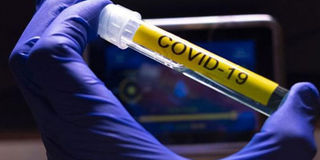Time to start random community testing

After government slowly and partially eased the measures to curb the spread of coronavirus, the country is recording a surge in Covid-19 infections in communities. In Kampala, 11 cases have been recorded, including one death at Mengo hospital. On July 21, Uganda announced the country’s first Covid-19 death as confirmed cases rose to 1,140.
The first victim was a 34-year-old Ugandan medical support staff working in Namisindwa District, eastern Uganda. The two new cases in Kampala are staff of the National Resistance Movement secretariat and another Covid-19 case has also been registered at Rubaga hospital.
There have been reported cases in the eastern parts of the country too and another suspected Covid-19 death has been reported in Namisindwa.
These soaring cases manifest the amount of danger faced with community infections spiking. However, what we see in downtown Kampala, in the city’s trading hub of Kikuubo and around shopping arcades and malls amid the surging community infections, tell a different story as far as standard operating procedures (SOPs) to be followed are concerned.
The populace is flouting the Covid-19 control measures, almost with impunity.
The crowds are surging, some commuter taxis are not observing the SOPs, carrying more passengers than allowed, and wearing masks is more or less optional. There is no modicum of precaution, and the new normal is just the old normal.
Given this situation, the Ministry of Health needs to rethink its strategy of only testing returnees and truck drivers, and start random testing on the streets of Kampala, people in Kikuubo and the taxi parks to ascertain the level and danger of infection in the communities. Workplaces need to be randomly visited and workers tested.
People in workplaces and downtown are interacting with other places either at their home or while meeting other communities’ members.
So, community testing should also include towns and municipalities where there is a concentration of many people. Even dwellers in city suburbs should be tested to get a clear picture of the danger of community infection.
This will help redeem a situation where in the event a case is registered, tracing contacts would be easy. When the second wave hits us, as World Health Organisation has suggested, it should find when we are already doing community testing, contact tracing and responding quickly to alerts.
Like in the case of the 80-year-old who died at Mengo hospital, it seems protocols were done in retrospection, taking samples after the victim had died. This may not be very helpful given that many people were involved in her funeral and even came in contact with the body.




